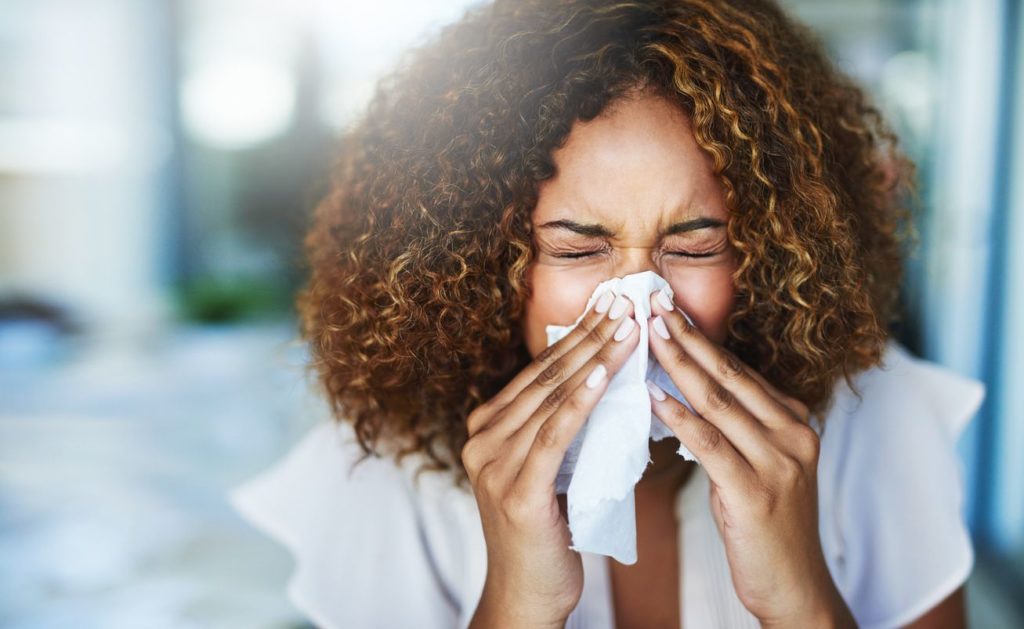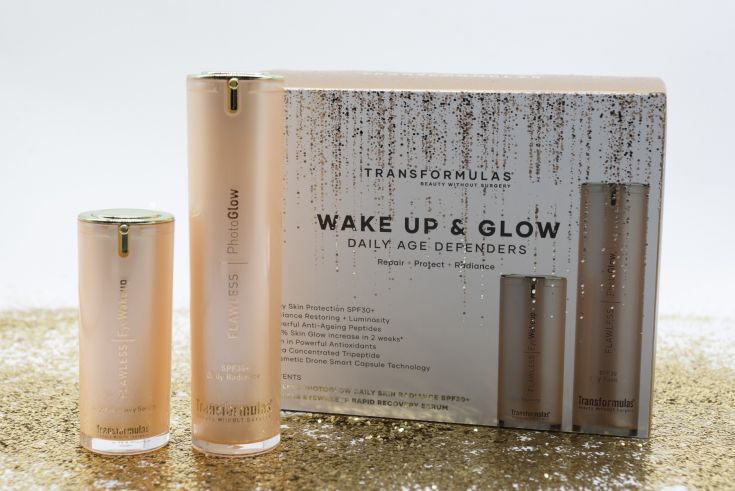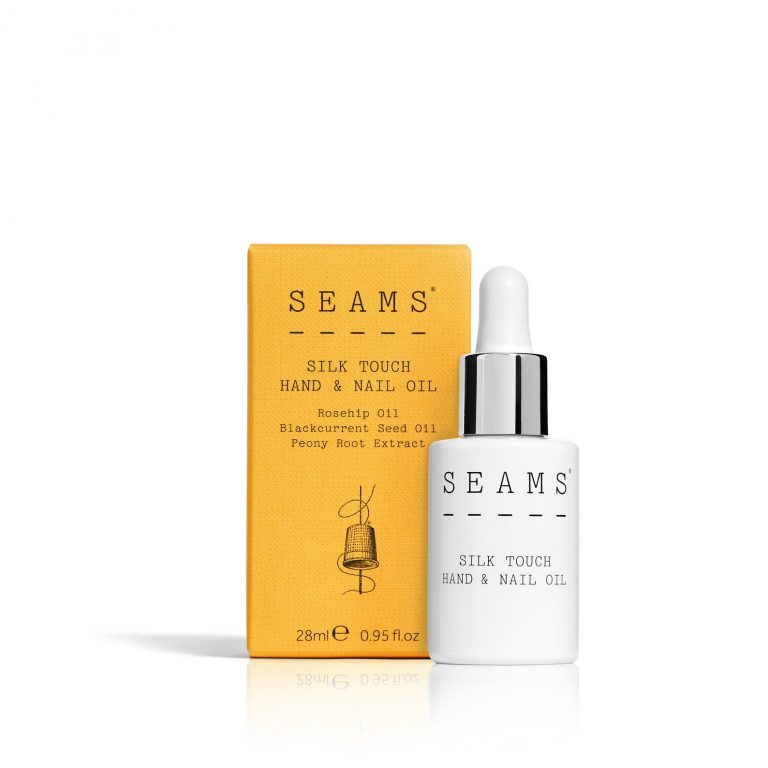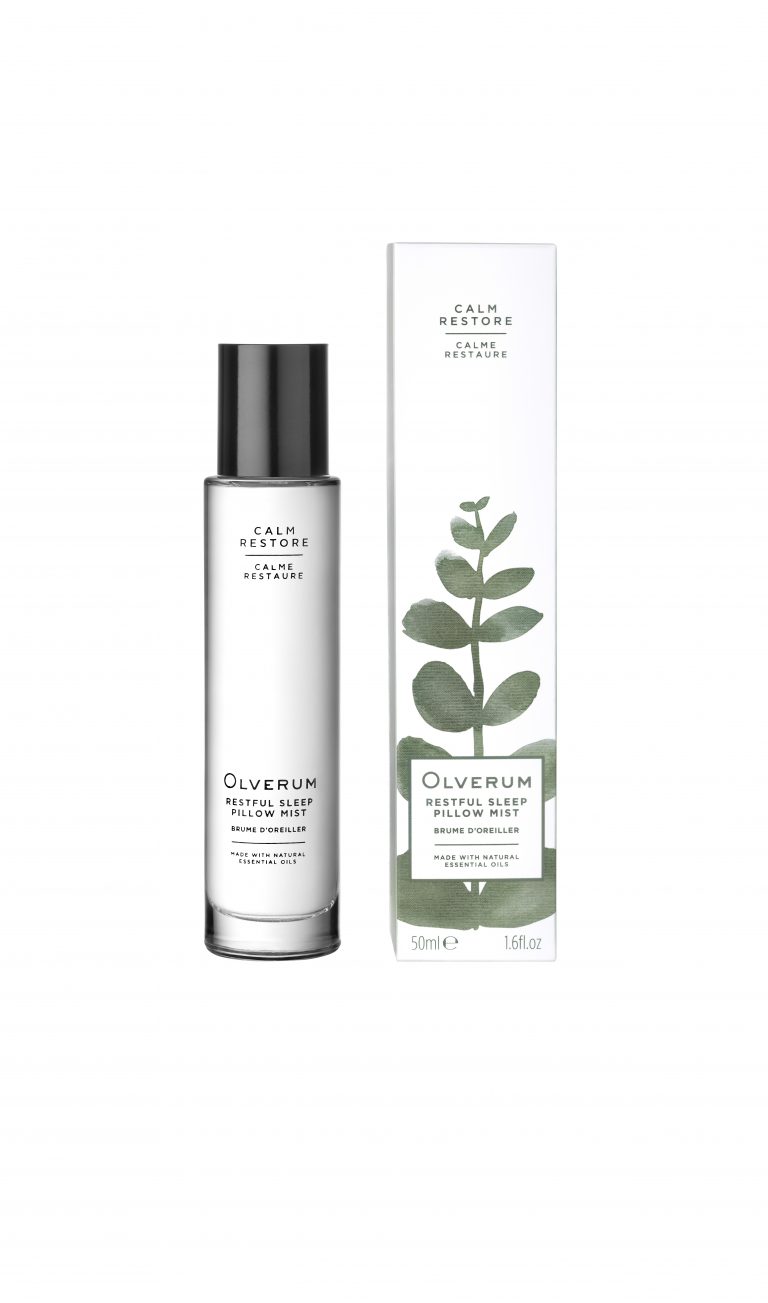The winter cough and cold season is different this year. We’re learning how to lower the spread and risk of infection from new COVID-19, as well as avoid catching influenza or a seasonal common cold that are prevalent at this time of year.
It is important to support your immune system all year round, so that it is as healthy as it can be to fight all of these seasonal infections, as well as the emerging new strains of coronaviruses. If you maximise your immune health you can lower your risk of contracting other infections, such as ‘winter vomiting bug’ which is common during colder months.

Dr Ross Walton, immunologist and founder of A-IR Clinical Research says, “Adopting good hygiene habits and social distancing helps lower risk of infection within a community. However, once infection takes hold, the immune system in younger or healthier individuals are better equipped to deal with and clear infections more deftly. Not so is the case for those where inflammation already exists in the body, such as those with diabetes, hypertension and hyperlipidaemia, where their ability to clear an infection is reduced, which can lengthen illness duration and worsen severity, as well as increase chances of fatality. In addition, the obese may already have an exhausted respiratory and cardiovascular system, further reducing their capacity to fight infection.”
Common signs that your immune system is low
A person with a poorly functioning immune system that can’t spot invaders swiftly enough will fall prey to recurring infections. The immune system will take longer to conquer the bug, so symptoms such as raised temperature, swollen glands, sore throat, cough and catarrh will be present more frequently.
Reasons why you could have a low immune system
- Eating a bad diet that includes junk food, lots of caffeine, not enough vegetables and fruit.
- Eating too much sugar competes with vitamin C, which is a bad thing because vitamin C is good for the immune system.
- Eating lots of fatty foods or having high cholesterol makes your immune cells lazy – they lie around instead of going out on patrol.
- Drinking excessive amounts of alcohol is also bad for your immune cells
- Smoking is bad for immune function as well as everything else in the body.
- Being stressed and unhappy also contributes to a less active and efficient immune response.
- Not getting enough sleep lowers your immune function.
Nutritional therapist and A.Vogel education manager, Alison Cullen says, “Lifestyles are increasingly full and rushed, with little time to relax and rest, let alone cook good meals. People tend to keep going on caffeine and refined sugar rather than accepting that they need to do less or alter their diet. Stress, which has an immensely negative effect on immune function, overflows in many people’s daily lives, from difficult work situations, awful commutes, family hassles and relationship problems – and that’s before we get to money worries and added stresses such as moving house or sick relatives. Sleep takes a back seat, and the overall effect is more vulnerability to infections, which then add further stress to the already pressurised life.

Take Control of your Health
Taking control of your own health and hygiene habits lowers the risk of spreading viral and bacterial infections and thereby helps safeguard your health, and the health of those around you. “Two areas of focus where diet and lifestyle changes could play an important role in strengthening the body’s ability to fight infection and improve recovery outcomes from viral infections are maintaining a healthy weight for your age, gender and height, and reducing inflammation in the body,” explains Alison.
Weigh in with these strategies
- Go Med: you may not be able to fly to the Mediterranean at the moment, but check out their eating habits. The Mediterranean diet is associated with many health benefits, including lower blood pressure and better heart function.[1] This diet will also promote a satisfying feeling of fullness after eating, and steer you away from fatty disasters such as crisps and refined fast foods. Focus on vegetables, fruits, legumes, fish, whole grain cereals, nuts, and seeds, using olive oil as a healthy fat source. Low consumption of processed foods, dairy products, red meat, and vegetable oils goes hand in hand with these positive picks.
- Watch the clock, not the scales: research shows that food consumed during the circadian evening and/or night, independent of more traditional risk factors such as amount or content of food intake and activity level, plays an important role in body composition.[2] The ideal time for people to eat the largest meal of the day is 8 hours before dim light melatonin onset. So, if you start to feel tired around 9 pm you should eat your largest meal at 1 pm.
- Go nuts: increasing daily consumption of nuts is associated with less long-term weight gain and a lower risk of obesity in adults.[3] Replace half a serving per day of unhealthy foods such as processed meat, chips, desserts, or crisps with nuts to achieve these results.
Eat to beat inflammation
Adhering to an anti-inflammatory diet was associated with lower risks of dying from any cause, dying from cardiovascular causes, and dying from cancer in a Swedish study.[4]
- Take these off the menu: pizza (unless homemade), cheese, margarine, white bread, cakes and biscuits, meat slices, sweetened yoghurt, fried foods.
- Put these on the menu: focus on these delights: carrots, sweet potatoes, pumpkin, butternut squash, mangos, apricots, peaches, nectarines, papaya, pears, pineapple, persimmons, blueberries, blackberries, pomegranate, purple grapes, blackcurrants, elderberries, prunes, plums, raisins, and figs.
- Oily goodness: Healthy oils that provide the essential fatty acids you need to counter inflammatory surges include flaxseed oil, hemp oil, walnut oil, pumpkinseed oil, and olive oil. Only cook with olive oil, the other oils can be used in dressings or for recipes that don’t involve heat.
Two supplements you should take to support your Immune System
‘The Truth About Boosting Your Immune System’ aired recently by the BBC[i], investigated the factors that can affect the human immune system, and explored ways in which we can support its health. During this programme, an assessment of a range of over-the-counter vitamin, mineral and herbal products that claim to boost immunity by University College London’s Professor Michael Heinrich found that Echinacea purpurea has reasonable evidence to support its use to prevent and treat symptoms of the common cold. Vitamin D also stood up to scrutiny.
“The key to staying well lies first and foremost with eating a healthy diet and following a balanced lifestyle. In addition, Echinacea is a herb that has been shown to prevent the symptoms of a common cold erupting in childhood prophylactic studies during the cold and flu season,” Dr Walton explains.
“In 2012, 755 participants took part in the longest and largest trial thus far by the Common Cold Centre (Cardiff) on the preventative use of Echinacea (Echinaforce) over a 4-month period.[5] The development of recurrent colds reduced by 59 per cent as well as the severity of cold symptoms. The need to use painkillers also fell by over half. The number of colds reduced as well as the number of days cold symptoms were experienced.”
For optimal results, OTC herbal medicines should contain all parts of the plant such as in Echinaforce, containing fresh, organic echinacea plant and root. TRY Echinaforce Drops, £10.50 (50ml) www.avogel.co.uk, Boots, Holland & Barrett and all good health stores and pharmacies.
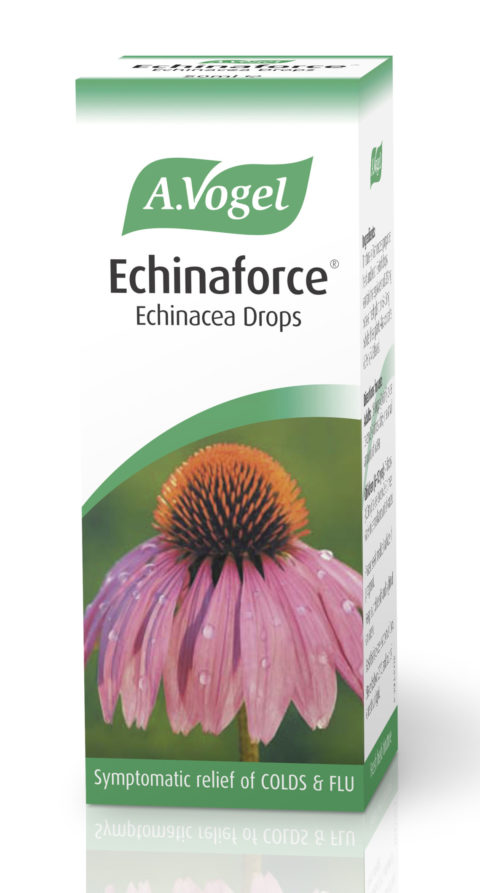
Those living in the northern hemisphere with reduced sunshine hours and the elderly in particular can be deficient in vitamin D; and the obese, diabetic and those suffering from stress can have depleted zinc resources. Supplementation in these groups are of particular benefit to help maintain a healthy immune system. TRY NEW Immune Support –£12.50 for 30 one-a-day tablets from www.avogel.co.uk £ 12.50 containing Nasturtium extract, zinc, more easily absorbed vitamin C from Acerola and vitamin D.
[1] Davis CR et al. Am J Clin Nutr. 2017;105 (6): 1305-1313
[2] McHill AW et al. Later circadian timing of food intake is associated with increased body fat. Am J Clin Nutr 2017; 106 (5): 1213 ? 1219. Ravussin E et al. Early Time‐Restricted Feeding Reduces Appetite and Increases Fat Oxidation But Does Not Affect Energy Expenditure in Humans. Obesity 2019; 27 (8): 1244
[3] Liu X et al. bmjnph 2019. doi: 10.1136/bmjnph-2019-000034
[4] J. Kaluza et al. Influence of anti-inflammatory diet and smoking on mortality and survival in men and women: two prospective cohort studies. Journal of Internal Medicine, 2018; DOI: 10.1111/joim.12823
[5] Jawad M et al. Safety and efficacy profile of Echinacea purpurea to prevent common cold episodes: A randomised, double-blind, placebo-controlled trial. Evidence-Based Complementary and Alternative Medicine 2012; doi: 10.1155/2012/841315
[i] The Truth About Boosting Your Immunity – BBC, 6 January 2021
